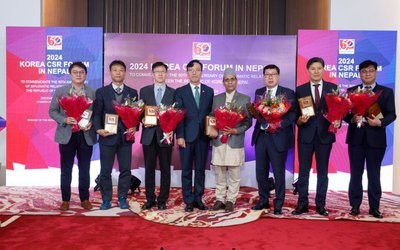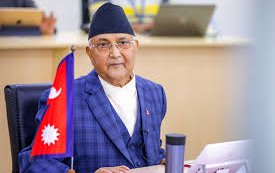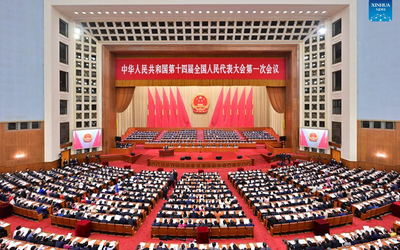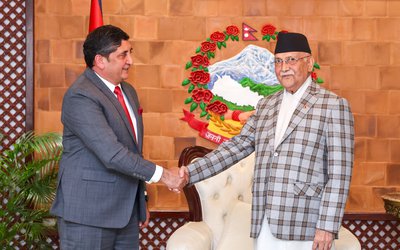Seventeen months have passed and the two third majority government has really not worked as per the expectation of the people. Does two-third mean anything to governance and performance?
For me, as a concerned citizen, the two-third majority government should provide two-third jobs, construct two-third roads, increase two-third GDP, increase two-third disaster preparedness, reduce two-third flow of men-outmigration, reduce two-third corruptions etc. in 5 years. The current governance signals that the government is slow at pace as well as not in the right direction.
People are tired of divisive politics. People are not concerned about who takes which department within the ruling political party or when will be the general assembly of the opposition party. The intra-political dispute is not a good sign of quality politics to contribute to political stability and development in Nepal. The political parties should rise above win-lose attitudes and work together on national agendas for development, international relations and foreign investment.
Centralization continues on many fronts as the Kathmandu politicians and bureaucracy are trying to keep power and resources within them wherever possible. This had hindered local development in Nepal.
Political leadership is not clear about the distinction between the national issues and needs, and provincial and local issues and needs. There are overlaps and sometimes even the contradictions between different levels of government. The latest example is “flood response” – who does what is not clear nor there is a coherent plan to respond to crisis.
How would the politicians and bureaucracy let go their power, resources and procurements to the provincial and local governments – is a great challenge? Constitutional Development Fund has violated the key democratic principle of separation of power by giving the executive function of budget execution on the legislature. How does the government set up a monitoring mechanism and internal audit of such a loosely managed fund, which is not a part of structured fund-flow mechanism?
The need for justice in Nepal remains. The selection of transitional justice leadership is not transparent and politically motivated. Amnesty International, International Commission of Jurists (ICJ), Human Rights Watch, and TRIAL International asked Nepal to adopt a consultative and transparent appointment process, ensure the amendment is in line with international human rights standards and with the Supreme Court ruling, and come up with a plan to take the transitional justice process forward.
Nepal’s peace process is dependent on inclusive state and inclusive development, which is further dependent on transitional justice and functional federal system of governance. Without political will and commitment to make this country, the divisive politics will put the democratic gains at risks in Nepal.
- World Humanitarian Day 2024: Committing to Peace and Accountability
- Aug 19, 2024
- Nepal Investment Summit: Unlocking Economic Potentials For Growth And Development
- Apr 28, 2024
- Investing In Women: Accelerating Progress
- Mar 10, 2024
- Embracing The 'Empty Chair: Advancing Global Inclusivity And Equitable Development
- Dec 29, 2023
- Mental Health In Youth
- Jul 16, 2023















